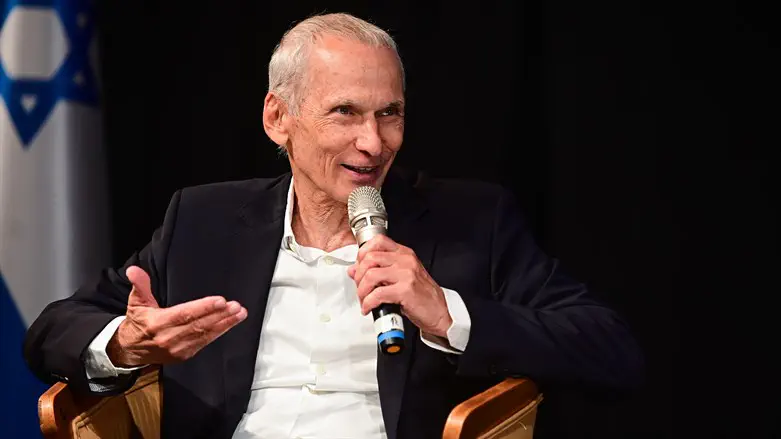
A new report aired by Kan Reshet Bet on Thursday has revealed that outgoing Public Security Minister Omer Barlev overruled the Prison Service in August, refusing to accede to their request to transfer security prisoners to different wings, even though prison regulations require such transfers to occur in order to reduce the likelihood of prison breakouts.
Barlev did not make this decision alone. At the end of August, a meeting was held between the Public Security Minister, Prisons Commissioner Katie Perry, and several division heads from the Shabak and the National Security Council, following threats issued by security prisoners that they would go on hunger strike if the transfers were implemented.
It was a reporter for Kan News who revealed the contents of this meeting, describing how "the prisoners were running the prisons" even in the painful aftermath of the Gilboa Prison breakout, and that whenever prisoners confronted the authorities, it was the authorities that ended up backing down.
The head of the Prison Service's intelligence division admitted during the meeting that in the past half year, no prisoner transfers had occurred between wings. "This started in February or March, right before Ramadan," he said. "Nothing's been done since. In 2019, there was a hunger strike among prisoners after we limited their phone access, and it only ended after the Shabak was brought in. But since then, one might say that their protests have succeeded."
According to a division head in the Shabak, the end of August was considered a "sensitive period" during which extra caution was needed in order to avoid an escalation. "Implementing a prisoner transfer now is not the right thing to do and is likely to lead to an escalation in Gaza. . . . The terrorist organizations won't let it pass without a reaction." He also warned that a hunger strike would strengthen Hamas and weaken the Palestinian Authority. "At the end of the day, we can't deal with a protracted hunger strike. Past experience has shown that the State of Israel always prefers quick solutions, and in the current situation, the stakes are much higher."
The division head added that Islamic Jihad, Hamas, and the Popular Front were coordinating their protests, making the likelihood of an escalation higher if prisoner transfers are attempted. "From our perspective, this isn't the right time to go about it," he concluded.
Amit Aviram, a division head with the National Security Council, concurred with the Shabak division head's assessment. "We have identified the same dangers . . . This could lead to a huge prisoner hunger strike which could trigger further escalation. I would also note that in the past, every time there was a big hunger strike, Israel came out the loser." Aviram advised the creation of an inter-agency taskforce whose role would be to develop methods of implementing prisoner transfers without causing problems, "as at the end of the day, these transfers are vital." He also advised "distinguishing between Fatah and Hamas."
Prisons Commissioner Katie Perry agreed to the need for an inter-agency taskforce, noting that "it was almost always the Shabak that brought an end to hunger strikes in the past - they were brought in over the heads of the Prison Service. At the end of the day, we're going to have to implement the prisoner transfers," she added. "We can't allow the prisoners to run the prisons. And we're prepared for any hunger strike, if it happens."
Speaking for the IDF and security forces operating in the territories, security secretary to Minister Barlev, Eli Khazari, said that the security forces also agreed that the proposed transfer of prisoners to other wings should be postponed.
As for Barlev, he emphasised that, "We must not accept a situation in which the prisoners are the ones writing the rules. . . . There will always be sensitive times. But, while currently we are in a relatively strong position with regard to Islamic Jihad, implementing the transfer now would be the worst possible timing."
Barlev added that the creation of an inter-agency taskforce would require the approval of the Prime Minister. He said he imagined that after the upcoming Jewish festivals [in September-October], it would be easier to implement the transfers, but added, "That's by no means certain . . . I don't think it's right to fix a date for this to happen." He eventually decided against the transfers, and also against publicizing the decision: "There's no need to make a public announcement telling everyone what we decided."
Asked to comment on the report, the Prisons Service issued a statement saying: "We do not intend to relate to discussions that took place regarding matters that impact on the security of Israeli citizens." Barlev's office declined to respond.
